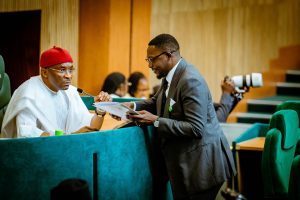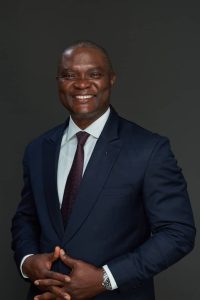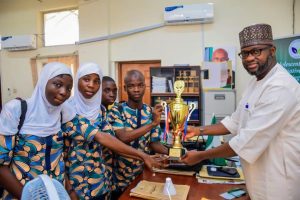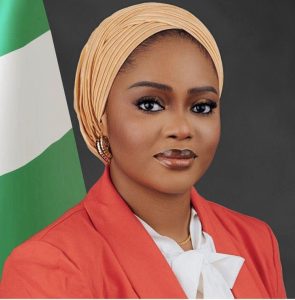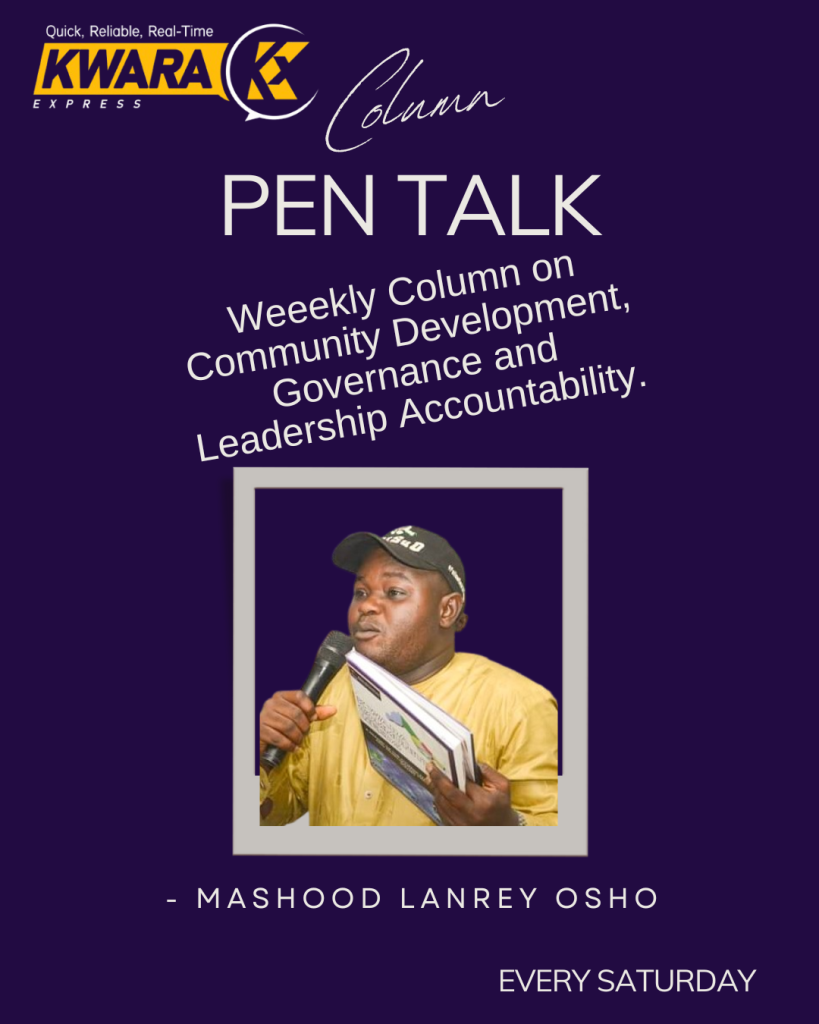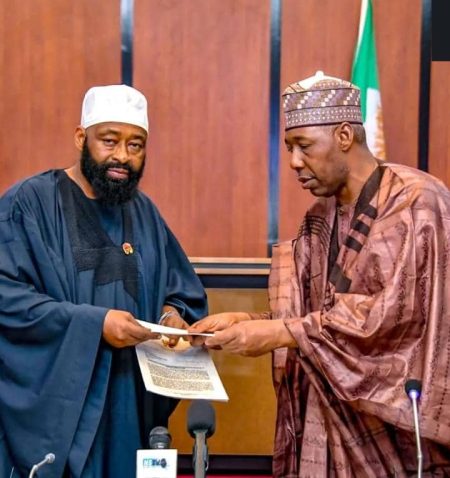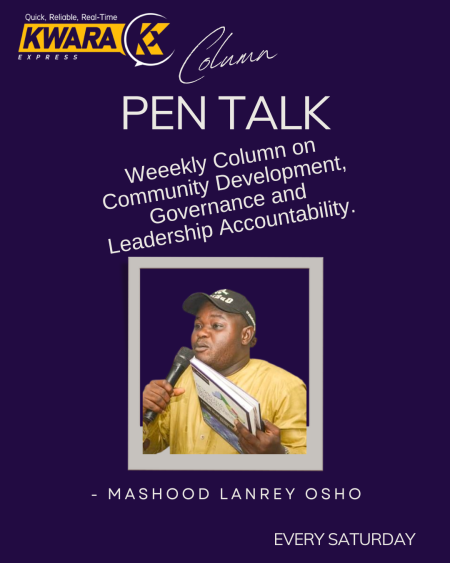Fellow Kwarans, I’m compelled to share with you the difficult decision to call off the October 1st protests. On August 14th, I wrote to the Commissioner of Police and Director General of DSS, Kwara State, expressing my intention to mobilize youths for the protests.
What prompted this move was Governor Abdulrahman Abdulrazaq’s August 2nd statement commending Kwara youths for not participating in the August 1st protests. He promised to cater to the youths’ needs, but I, personally, saw this as a mere political promise. I didn’t want the governor to take our non-participation for granted, knowing how politicians think. By holding protests, I aimed to draw the governor’s attention to Kwara’s pressing needs, emphasizing that we’re peaceful people who know our rights. Thus, it’s been a month since Governor AbdulRahman AbdulRazaq made promises to the people of Kwara State on August 2, but unfortunately, nothing obvious has been done to fulfill those promises.
After submitting my letter, the Kwara State Police began investigating me. I informed them that an investigation was unnecessary, referencing my details at the Kwara State Police Command Admin as Deputy Coordinator of Anti-corruption Civil Society Organizations (ENetSuD), where I oversee project tracking. We have a partnership with the police to provide security during site visits.
On August 17th, I was invited to the police headquarters for questioning. I explained that the protests would be venue-based, not street protests, to avoid hijacking by hoodlums and thugs. I commend the Kwara State Police Command for their professionalism.
I also appreciate Barr. Olateju, former NBA Secretary, for his pro bono services. He stood by me, sending one of his lawyers to accompany me to the police headquarters.
However, three days later, I received a call from Alhaji Shola Muse, who informed me that some miscreants had framed me, claiming I was working with Sowore to disturb the state’s peace. Alhaji Muse clarified that I had no ties to Sowore’s group and condemned the injustices. He facilitated a meeting between me and the Commissioner of Police.
At the meeting, I emphasized that the protests were necessary due to the suffering of my people, hunger in the state, unpaid gratuity for the pensioners, and no increments in the monthly payment for the state pensioner’s in the last few years, high transportation costs, and the need for immediate minimum wage implementation. Although, the CP opposed the protests, I reassured him that I held no personal grudges against the governor and would call off the protests if our demands were met. I requested the CP to communicate our demands to the governor.
Regrettably, some individuals have resorted to spreading falsehoods and propaganda, maliciously linking me with Omoyele Sowore, whom they falsely label an enemy of the Ilorin Emirates, particularly in the context of the Tantolohun crisis.
This fabricated narrative aims to tarnish my reputation, alleging that I’m colluding with an adversary of the palace.
Ironically, these detractors are unaware of my deep connection to the palace. My wife hails from the palace, and my father-in-law, affectionately known as Baba Soldier—a revered figure in the Ilorin Emirates, whom our esteemed Emir (Shehu!, Shehu!) holds in high regard—is a testament to my strong familial ties.
These baseless accusations stem from their sinister plot against me, oblivious to my impeccable record as a human rights activist. My accomplishments and contributions to the struggle are well-documented and verifiable.
Rather than engaging with these hypocrites, I’ll allow them to continue their misguided worship of oppressors. Ultimately, they’ll realize the harm their complicity has caused.
As a steadfast human rights advocate, my commitment remains unwavering. I won’t be swayed by malicious falsehoods.Thus,for clarity, I do know Sowore, and it’s inevitable that any human rights advocate in Nigeria would be familiar with him. In fact, I hold him in high esteem.
As a human rights activist, I refuse to dissociate myself from Sowore or any other champion of justice. The real issue lies with those who framed me up, exploiting security agencies to silence me. These individuals are mere errand boys for the government, perpetuating falsehoods while languishing in abject poverty.
This experience has taught me a valuable lesson: when fighting for the people, it’s essential to reassess who you’re fighting for. Some individuals would rather betray the trust of their fellow citizens to serve the interests of oppressive forces, rather than standing up for what’s right.
Recently, someone sent a message to one of Governor AbdulRahman AbdulRazaq’s aides — an individual who commands my utmost respect in this government whose unwavering commitment to duty has never been compromised by personal relationships. Before my letter to the police and DSS, falsely accusing me of constantly abusing the governor. They urged the government to take action against me, warning that if they don’t, I may become difficult to control. Ironically, this individual had previously sought my help, claiming they were being mistreated and injustices were being done to them at their workplace. I had assured them of my support.
It’s disheartening to see people compromise their values and dignity for personal gains or favors from the government. However, I remain resolute in speaking truth to power, a principle I’ve upheld since my days at Federal Polytechnic Offa. Even when it meant standing up to a stubborn lecturer, I didn’t hesitate, and although it led to consequences – including the loss of the lecturer’s job and my inability to finish my studies there – I’ve never regretted it.
Today, I’m proud to be a graduate of Statistics from Kwara State Polytechnic, with additional certifications. My experience has taught me that speaking the truth is essential, regardless of potential consequences or loss of position. There are always more opportunities to make a difference.
During my final exam in a professional program at an institution in Kwara State, an incident occurred that left an indelible mark on me. A student arrived 30 minutes late, pleading to be allowed to take the exam. Despite her appeals, the invigilator remained firm. Another late-arriving student, also a lady, met the same resistance.
A lady sitting in front of me intervened, advocating for the students, but the invigilator sarcastically told her to join them. Now, three people were embroiled in the dispute. That’s when I stepped in, challenging the lecturer’s decision. The exam hall erupted into chaos, but eventually, calm was restored, and the latecomers were permitted to take the exam.
After the exam, I visited the lecturer, who revealed that my advocacy for their rights, specifically securing unpaid salaries from the government, ultimately saved me from potentially failing his course. He joked that, had it not been for my advocacy, he would have given me a carryover. We shared a hearty laugh.
However, the same lady I fought for later criticized my approach, saying I shouldn’t have intervened. This experience taught me a valuable lesson: not every battle is worth fighting, and some individuals won’t appreciate your efforts, even when you’re fighting for their benefit.
Advocating for others can be a thought-provoking experience. It’s become clear to me that not all protests require leaders. When people are severely impacted, they’ll take to the streets spontaneously, without needing guidance.
A recent example illustrates this point. Last month, tricycle drivers(Keke-Maruwa) staged protests at Sango and Unity Junction, driven by the crippling effects of the petrol price hike. Interestingly, these same individuals were accused of receiving payments from the state government to abstain from participating in the August protests.
This experience reinforces my belief that when people are genuinely affected, they don’t need leaders to tell them what to do. The urgency of their struggles naturally propels them into action.
I’d like to express my gratitude to Hon. Suleiman Olayinka Jamiu Sakele for his unwavering support during the protests. Despite being a member of the APC from Adewole Ward with the governor, he was unfairly labeled as an opposition figure and subjected to criticism. Some even claimed that his support for my protests was motivated by his loss in the previous election, which is simply untrue. Those who made these claims are unaware of his remarkable impact in Adewole Ward and Kwara State through his foundation, which has lifted many people out of poverty.
It’s disturbing to think that anyone who organizes protests against the government is automatically viewed as an enemy. Isn’t the purpose of protests to bring attention to the pressing needs of the people and hold the government accountable? Why should the government fear protests? Protests are a fundamental right enshrined in our constitution.
I recall Senator Adam Oshiomhole’s progressive approach during his tenure as Edo State governor. He designated a specific area at the Government House for protesters, demonstrating his commitment to free speech. Even the president, who participated in numerous protests before taking office, understands the importance of peaceful demonstrations against injustice and maladministration.
It’s crucial that we recognize citizens who mobilize protests not as enemies, but as visionaries who deserve support. When will Africa recognize the value of constructive dissent and the power of peaceful protests in shaping our democracy?
Despite my efforts to call off the protests, some individuals have resorted to name-calling, labeling me a ‘paperweight activist’ and accusing me of seeking popularity. I find these allegations frivolous and baseless.
As the projects tracking coordinator for ENetSuD over the past seven years, my record speaks for itself. Anti-corruption agencies and federal and state MDAs can attest to my unwavering commitment to fighting corruption and injustice.
Those who claim I’m seeking popularity fail to recognize that God has already blessed me with everything I need. The real issue lies in the fact that advocating for transparency and accountability automatically makes one an enemy of those in government, rather than a partner in progress.
I refuse to shy away from this fight. My conscience and conviction drive me to continue pushing for a more accountable and just system.
I’d like to express my heartfelt appreciation to some distinguished individuals from Ilorin who, blessed by God Almighty, intervened and advised me against proceeding with the protests. They reminded me that Ilorin is a peaceful state, where the people understand the situation, and encouraged me to suspend the protests for their sake.
Notably, they pointed out that I wasn’t being paid to organize the protests, and if my intention was truly to serve the masses, they would intervene with the governor to address our concerns. My colleagues at ENetSuD also opposed the protests, urging me to call them off to prevent unrest in the state.
Despite my explanations, they insisted that I should reconsider, and I ultimately decided to listen to their counsel.
On August 1, 2024, a pivotal day, President Bola Ahmed Tinubu witnessed protests that left an indelible mark. As citizens and government officials, it’s crucial we understand the protests’ causes and work towards rebuilding trust. My forthcoming book, launching on December 29, 2024, will serve as a comprehensive guide for fostering trust and transparency between citizens and the government.
The book explores:
Understanding Protests: Delving into the history and causes of protests in Nigeria,Government Accountability Strategies for addressing citizens’ grievances and ensuring transparency,Citizen Engagement Encouraging participation in governance and decision-making processes,Inclusive Decision-Making*: Building trust through collaborative and representative leadership.
To shed light on these critical topics, I’m honored to say that am in talk with Mallam Lanre Issa Onilu, Director-General of the National Orientation Agency, to be our guest speaker. His keynote address, “Rebuilding Trust: Government Accountability and Citizen Engagement in Post-Protest Nigeria,” will provide invaluable insights.
Join us on December 29, 2024, as we work together towards a more accountable, transparent, and inclusive Nigeria.
You’re invited to be part of this pivotal conversation!
Additional notable speakers are welcome to contribute to the discussion.
Let’s unite to build a brighter future for Nigeria!
This decision to call off the protests wasn’t easy, but I prioritize the well-being and safety of our people.
God bless kwara state and Federal Republic of Nigeria.


